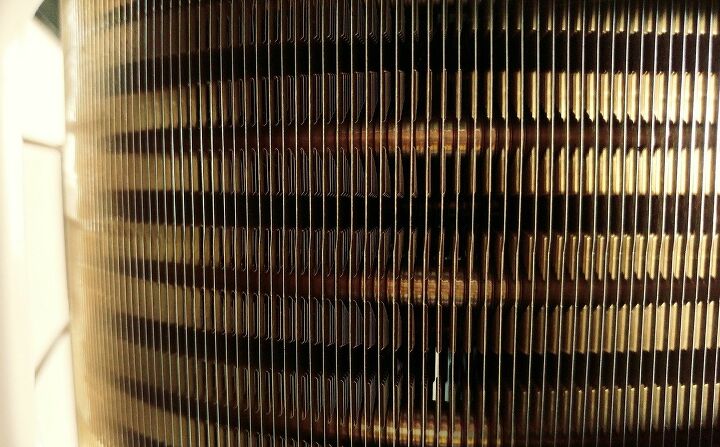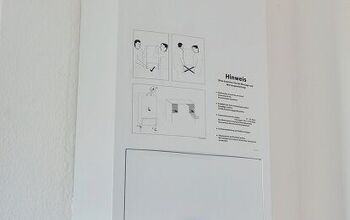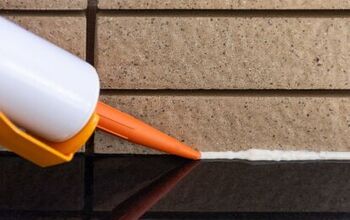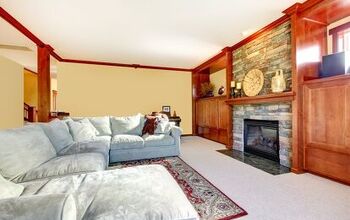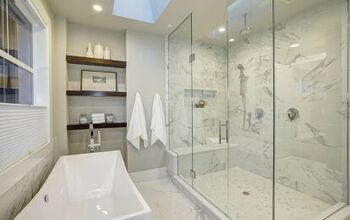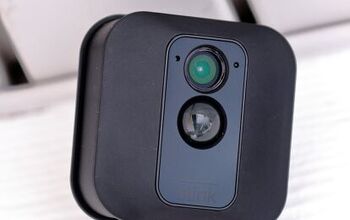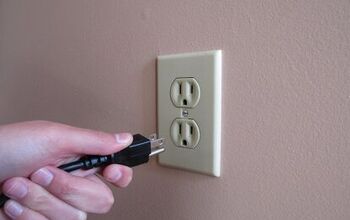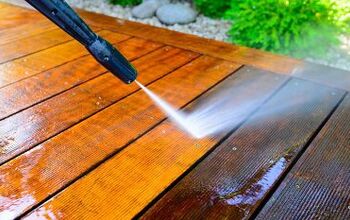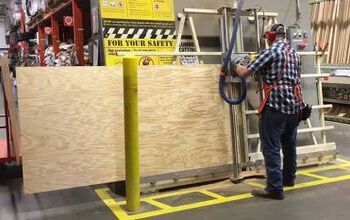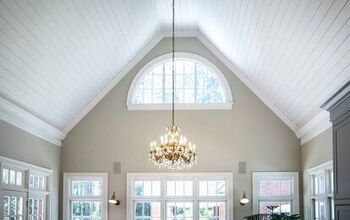What Are The Pros And Cons Of Electric Baseboard Heaters?

When winter rolls around, if you have electric baseboard heaters, you probably already know their perks and struggles. You might love them, or you may be ready to replace them with something else. But, before making any decision regarding your home’s heating system, it’s worth knowing the pros and cons of said system.
Electric baseboard heaters allow you to control the temperature of individual rooms and are easy to install. They also offer quiet operation, but they are not very efficient and can be rather unsightly. Plus, electric baseboard heaters can pose some risks to young children or pets in the home.
Whether you’re considering switching to a more efficient system or sticking with baseboard heating, it’s worth a closer look. Every system has pros and cons, so it’s essential to educate yourself so you can make an informed decision.
Do You Need a Heating and Cooling Contractor?
Get free, zero-commitment quotes from pro contractors near you.

Different Types of Baseboard Heaters
There are different types of baseboard heaters, gas and hydronic, that send hot water through copper coils to heat the home. They can heat the water through the home’s boiler system. There are also electric baseboard heaters, different from gas or hydronic, individually controlled, so each unit has its own thermostat.
How Do Electric Baseboard Heaters Work?
Before you install baseboard heaters into your home, you should research how they function. Electric baseboard heaters are also known as electric resistance heaters. Baseboard heat refers to the location of the heater along the bottom of the wall.
These heaters use zone heating to control the temperature in each room of your home individually. There are no furnaces, boilers, heating ducts, vents, or blowers, but instead heating elements that generate heat. The heat is then slowly released into the room where the baseboard heater is, rising to heat the home.
The Benefits of Electric Baseboard Heaters
Baseboard heaters are not as common as other heating options, but they are still often found in homes. Electric baseboard heaters have several advantages.
1. Electric Baseboard Heaters Are Quiet
You may be familiar with the noise a heater makes when it turns on. This happens when you’re near the furnace, or the blower is in poor condition. Sometimes it’s even loud enough that it can disrupt conversation or sleep.
If you have an electric baseboard heater, you won’t hear these familiar annoyances. Besides a few pops or click when the heating element warms up, baseboard heaters do not create noise.
2. Electric Baseboard Heaters Provide Zone Heating
Electric baseboards are beneficial for those who live in family homes. Heating zones allow families to set different temperatures throughout different areas of their home. Most zone heating now has a digital feature to designate preset temperatures without being influenced by other areas.
If you want the bedroom to stay cool but don’t want to be cold in the living room, you can. If you have a guest room that you rarely use, you can keep the unit off until it’s in use. Zone heating can save money that you would otherwise have wasted on heating rooms that you aren’t using.
3. Electric Baseboard Heaters Are Easy to Install
In some homes, ductwork can be difficult or expensive to install. Electric baseboard heaters do not require ductwork. For this reason, baseboard heaters are an easier and cheaper alternative in terms of installation.
4. You Get a Secondary Heat Source with Electric Baseboard Heaters
If you live in a climate where winters are harsh, electric heat pumps often won’t keep up. If your home is prone to these conditions, an electric baseboard heater will provide a quality secondary heat source. When it gets too cold, flip the baseboard heaters on where you need extra warmth.
The Disadvantages of Electric Baseboard Heaters
Electric baseboard heaters have notable benefits, but some don’t consider electric baseboard heaters efficient or practical heat sources.
1. Electric Baseboard Heaters Are Expensive
Electric baseboard heaters are expensive in the long run, which poses a disadvantage. They typically use more electricity, which means higher electric bills, especially in the winter months. The placement of electric baseboard heaters can also add to the expense.
If the electric baseboard heater is near windows or exterior walls and senses cold air, it will work overtime. It does this to keep your home warm because it responds to the nearest thermostat. This will increase energy expenses much more.
2. Electric Baseboard Heaters Interfere with Interior Design
Electric baseboard heaters, by design, take up wall space in every room. They are placed under windows and along exterior walls to reduce the cold that passes through the room. Inevitably, a baseboard heater will be in the way of where you’d like to put a piece of furniture.
Because electric baseboard heaters get hot, you should keep furniture and curtains at least six feet away to prevent fire. The placement of the units can limit where you place your furniture and what type of drapery you can have.
3. Electric Baseboard Heaters Can Pose Safety Hazards
Electric baseboard heaters get really hot when they’re in use. This happens because the heating element gets hot, but the heat covers also get very hot. This heat can be dangerous for children and adults alike.
Children may be prone to sticking their fingers near the heaters, and parents may look for ways to block the heaters. Both of these can be dangerous.
It’s hazardous for the child because of injury and for the parents because of a potential fire. If you have young children, you must continuously monitor them to ensure the safety of them and the home.
4. Electric Baseboard Heaters Produce Dry Heat
Electric baseboard heaters are notorious for producing dry heat. Because of this, people in the home can experience dry skin, throats, and eyes, and experience bloody noses. If you’re prone to these problems beforehand, a humidifier is necessary.
A humidifier will compensate for the dry air in the home while relieving some of the sinus issues. However, humidifiers require more energy. They can also be annoying to keep clean and filled with fresh water.
5. Electric Baseboard Heaters Require Regular Cleaning
Anytime a system is forced to work harder or longer, this increases energy costs. To keep the baseboard heater working efficiently, you must keep it clean. Cleaning baseboard heaters is simple, requiring only a vacuum to remove any dust around the system.
Are Electric Baseboard Heaters Efficient?
Before installing an electric baseboard heater, consider if it is energy efficient enough for you. Energy efficiency depends on a variety of factors such as age, condition, and where you live. Unfortunately, electric baseboard heaters aren’t typically as energy efficient as you would want them to be.
In most climates, if you have an electric heat pump, it will operate more efficiently than electric baseboard heaters. If you have electric baseboard heaters, you should see savings on your energy bill once you aren’t using them anymore. If you want an inexpensive alternative without converting your home to central heating and cooling, try a ductless HVAC system.
Baseboard Heat Compared to Forced Air Systems
To understand the benefits and disadvantages of electric baseboard heaters, you have to compare them to other systems. Forced air systems are one of the most common heating systems found in homes today. When comparing the two, look at the pros and cons of each.
Baseboard heaters often come out on top because you can easily customize the temperature in each room. Furthermore, they often provide better heat when temperatures are below freezing. The delivery of baseboard heat is ductless, producing a more quiet release.
However, baseboard heaters can fall short of forced air systems for several reasons. The first reason baseboard heaters fall short is that they are more expensive to run. After all, they require more energy. Additionally, baseboard heaters are also more restrictive than forced-air systems. This is because of where you must place them and how their placement affects surrounding items.
Electric baseboard heaters can be a hassle because they require more cleaning. This is not only to prolong the life of your system but also for your safety. A dirty baseboard heater can create safety hazards.
Related Questions
What is the average price of an electric baseboard heater?
The average cost to buy and install an electric baseboard heater is about $760. However, electric baseboard heaters can cost between $400 to $1,200, installation included. The model you choose will affect the heater costs, as some have programmable thermostats and other features.
What should I do if my electric baseboard heater doesn’t produce heat?
If your baseboard heater isn’t producing heat when you turn it on, first inspect the area around it. Be sure that there isn’t furniture or drapes blocking the vents. Next, check the thermostat on the baseboard heater to ensure the heat is on and set to the correct temperature. Once you’ve done this, inspect the effectiveness of the heater. Inspect the heater by checking the electrical system of the heater. Tripped breakers can be a common problem. Inspect the valves, as well as they can sometimes corrode or stick together if they aren’t properly lubricated.
Do You Need a Heating and Cooling Contractor?
Get free, zero-commitment quotes from pro contractors near you.

Final Thoughts
Electric baseboard heaters are a great option if you don’t have central cooling and heating. They are also beneficial if the climate you live in requires an additional heating source.
The disadvantages of electric baseboard heaters are that the energy costs are high, and so are the safety hazards. Electric baseboards can also interfere with your home’s design and create a dry environment for your family.

Stacy Randall is a wife, mother, and freelance writer from NOLA that has always had a love for DIY projects, home organization, and making spaces beautiful. Together with her husband, she has been spending the last several years lovingly renovating her grandparent's former home, making it their own and learning a lot about life along the way.
More by Stacy Randall



